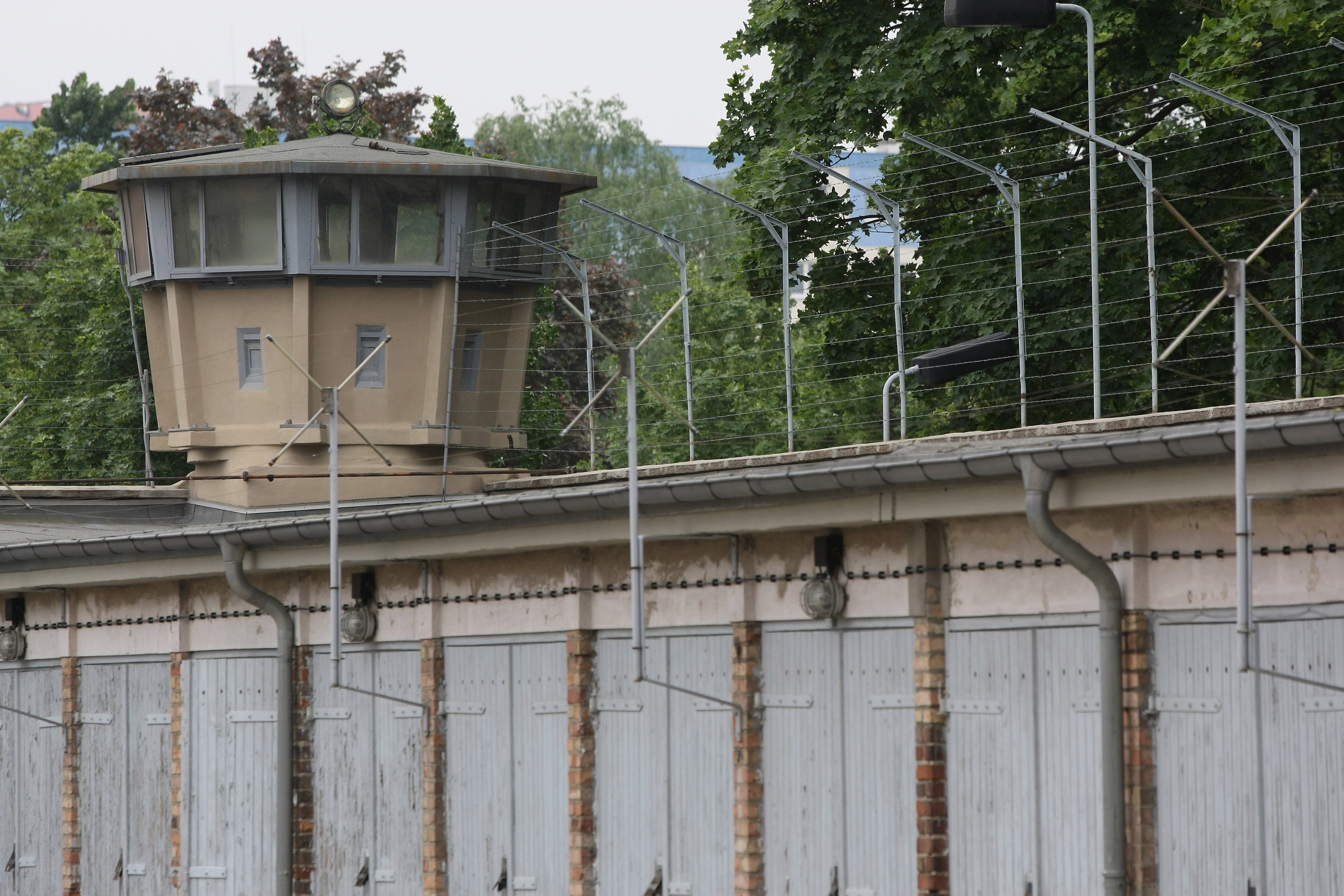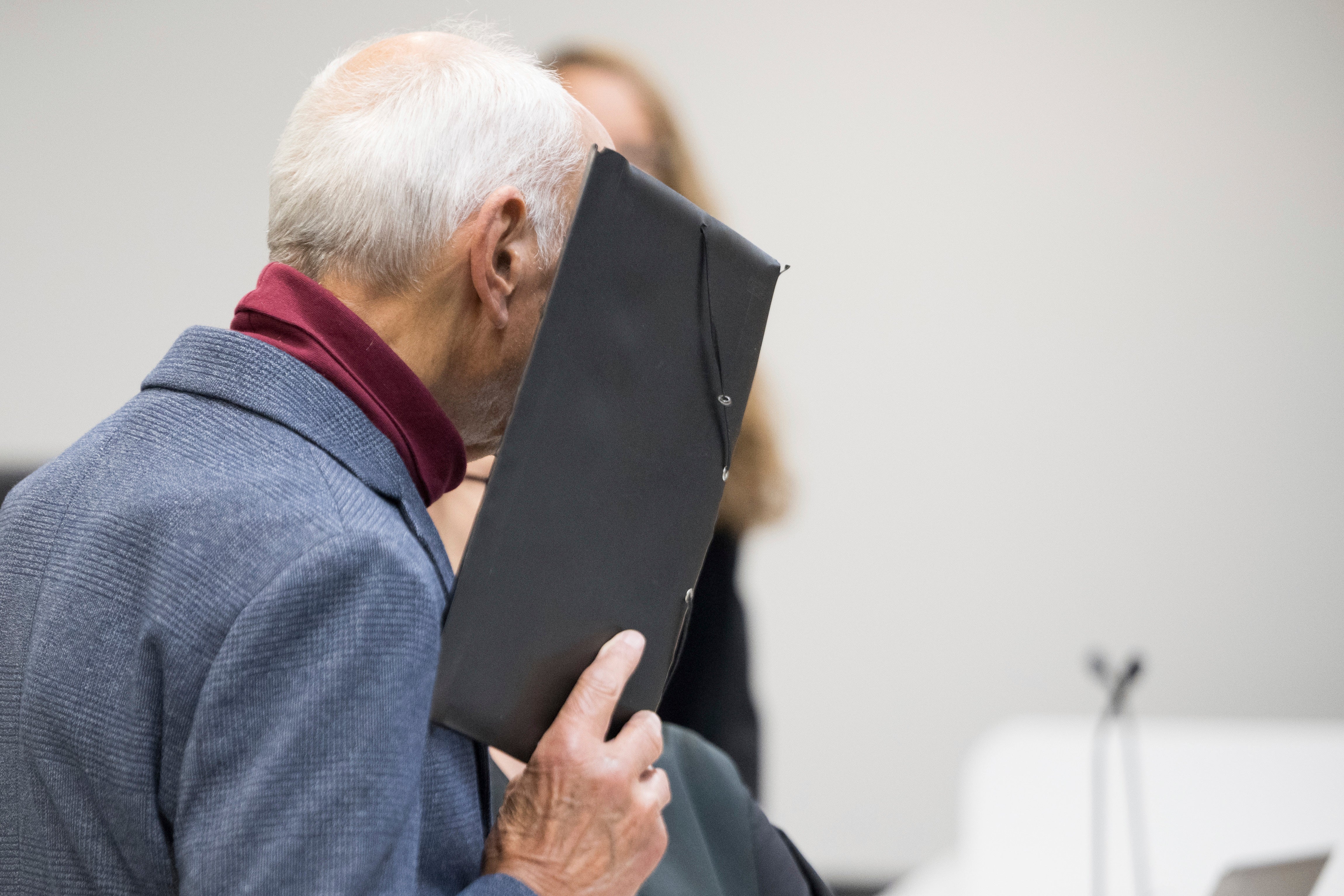Former Stasi secret police officer jailed for murder at Berlin Wall border crossing
The city was divided at the time by the Berlin Wall

Your support helps us to tell the story
From reproductive rights to climate change to Big Tech, The Independent is on the ground when the story is developing. Whether it's investigating the financials of Elon Musk's pro-Trump PAC or producing our latest documentary, 'The A Word', which shines a light on the American women fighting for reproductive rights, we know how important it is to parse out the facts from the messaging.
At such a critical moment in US history, we need reporters on the ground. Your donation allows us to keep sending journalists to speak to both sides of the story.
The Independent is trusted by Americans across the entire political spectrum. And unlike many other quality news outlets, we choose not to lock Americans out of our reporting and analysis with paywalls. We believe quality journalism should be available to everyone, paid for by those who can afford it.
Your support makes all the difference.A former officer for Communist East Germany’s Stasi secret police was sentenced to 10 years in prison on Monday for the fatal shooting of a Polish firefighter at a border crossing between East and West Berlin 50 years ago, German media said.
Manfred N, 80, whose last name was not given because of privacy law, was convicted of murder over the March 1974 killing of Czeslaw Kukuczka, a 38-year-old Polish national, several newspapers reported.
At least 140 people were killed at the Berlin Wall between 1961 and 1989. Few people have been held responsible for those deaths and generally face manslaughter charges, if any.
The judgment can be appealed. Manfred N, from the eastern city of Leipzig, did not speak during the trial.
Kukuczka had told officials at the Polish embassy in East Berlin that he had an explosive device in his briefcase to force them to allow him to go to the West. The city was divided at the time by the Berlin Wall.
Kukuczka was passing through the Friedrichstrasse border crossing known as the “Palace of Tears” when he was shot in the back from close range in broad daylight.
Instead of being taken to a nearby hospital, Kukuczka was transported to a Stasi prison hospital further away because of terrorism suspicions, and bled to death there.
His family was not informed of the true circumstances of his death and his urn was buried in Poland.

Key to the case was the reconstruction of a shredded document in 2016 that listed Stasi officers who received awards shortly after Kukuczka’s death for preventing what was described as a border provocation, Tagesspiegel newspaper said.
Manfred N’s defence lawyer called for him to be acquitted, saying it could not be conclusively proved he was the shooter or that the killing qualified as murder instead of manslaughter, subject to a statute of limitations, Tagesspiegel reported.
Authorities made little headway with the case until a decisive tip-off about the identity of the shooter emerged in 2016 from the Stasi’s voluminous archives, dpa reported. Prosecutors initially suspected the case would amount to manslaughter, which unlike murder falls under the statute of limitations in Germany.
East Germany built the Berlin Wall in 1961, preventing most of its citizens from traveling to the West. Many tried to escape by tunneling under it, swimming past it, climbing or flying over it. At least 140 people died in the attempt.
The heavily fortified border was opened on Nov. 9, 1989, a key moment in the collapse of communism in Europe. Germany was reunited less than a year later.